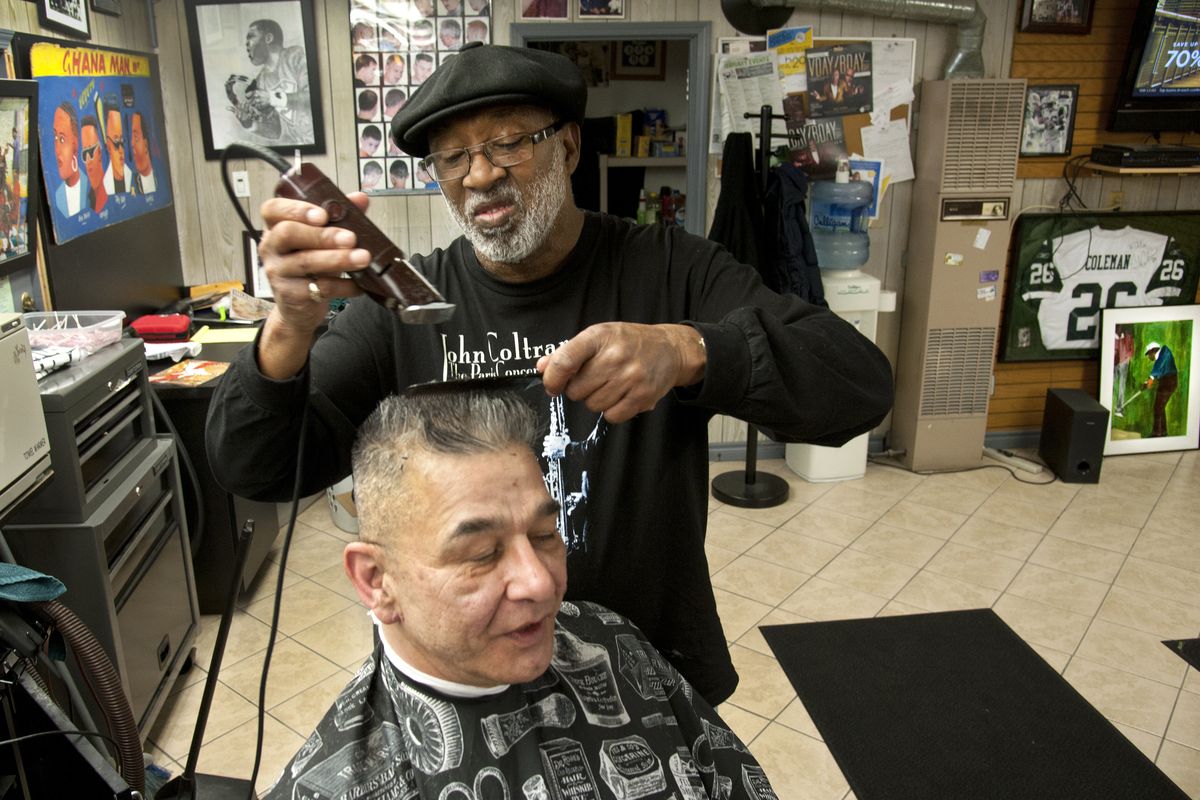Sifford came to Spokane in 1997 to aid club’s efforts

Spring was moving aside for summer in 1997, and golf was being turned on its head.
A couple months before, Tiger Woods had become the first African- American to win the Masters – by 12 strokes no less. Already he’d been Sports Illustrated’s Sportsman of the Year. He would jump to No. 1 in the world golf rankings despite being “humbled” by Congressional Country Club and a 19th-place finish in the U.S. Open in mid-June.
That was the weekend Charlie Sifford came to our town.
Tiger was 21. Charlie was 75. Newbies and non-golfers suddenly drawn to the game by the youthful greatness that had arrived by meteor likely had never heard the older man’s name. He hadn’t done the things Tiger was doing.
But he’d done the things Tiger hadn’t had to do.
So for the members of Spokane’s Pine State Athletic Club, most of them of the generation between the two men, having Sifford accept an invitation to be a part of their annual Juneteenth Open tournament that year was more than just a thrill.
“It meant the world to us,” remembered Tony Blake, the Juneteenth tournament chair that year, “just knowing what this man did, the foundation he’d built for us.”
Sifford’s death this week at the age of 92 was marked by the acknowledgement of his pioneer stature as the first black golfer to earn a PGA Tour card and win a tournament, and of the cruelties he endured along the way. The tributes were many and moving, including from Woods, who offered “I probably wouldn’t be here” without Sifford’s sacrifices.
But double-digit handicappers could feel the same way.
The Pine State club formed in the mid-1970s – predominantly African-American but interracial from the start, with both social and community service aims. In 1997, the members hoped Sifford’s visit would help kickstart a junior golf program for minorities and the disadvantaged.
Five years before, Sifford had published his autobiography, “Just Let Me Play” – and if the hardships he detailed didn’t shock blacks who had endured their own, there were revelations.
“Being a guy who just started in golf,” said Larry Roseman, a club member, “I never had any idea we had blacks playing on that level until I read it – (Ted) Rhodes and (Bill) Spiller and them. That was a big deal for me.”
Which is why, when Sifford is cited as the Jackie Robinson of his sport, it’s important to recognize the differences. African-Americans knew full well there were black players capable of playing and starring in baseball – the Negro Leagues were full of them. That didn’t make it any easier for Robinson, whose fight was played out in a hostile, public spectacle.
Sifford’s ordeal was mean and ugly, too, but with virtually no rooting section because golf was all but built on exclusion – economic, social and racial.
Simply, blacks weren’t supposed to play.
In their early days on Spokane’s courses, the Pine Staters got the stares that suggested as much.
“If there was ever a bastion of WASPs, it was golf,” said Indian Canyon pro Gary Lindeblad, who played in a foursome with Sifford here. “Charlie lowered his head and plowed through it.”
In doing so, he understand- ably grew a pretty hard bark. That’s not what his hosts in Spokane experienced, however.
He signed books and told tales at a banquet speech. He enjoyed the Canyon – shot a 72, by Lindeblad’s recollection. When he finished, he took a youngster named Ray Kennedy Jr. over to the driving range for a personal lesson.
“He loved to laugh and have fun,” Blake said. “And he wanted everybody to succeed at the game.”
And he could return the hospitality. Six years after his trip to Spokane, Sifford invited Blake to be his guest at the U.S. Open at Olympia Fields in Chicago, introducing him around to Woods and PGA bigshots and even some of his golf pupils – like the Cubs’ Ernie Banks, another legend who recently passed. When he was playing 18 holes instead of a doubleheader and faced a difficult shot, Banks said, he kept one thing in mind.
“Charlie Horse said play it this way,” he told Blake.
Charlie Horse flew to Spokane on Friday and out on Monday. The Pine Staters rustled up $2,500 for an appearance fee he more than earned. Back in those days, the tour pros who blew in here for exhibitions collected 20 times that, and kept their Lears idling on the tarmac for the getaway. Charlie Sifford left something behind.
“He wasn’t bitter – at least, he didn’t sound bitter,” said Larry Goncalves, another club member. “I remember he told me, ‘If you walk away bitter, they win.’ I thought, ‘What the hell is he talking about?’ But the next day I was still thinking about that, and he’s right.”
Fact is, it was Charlie Sifford who turned golf on its head.